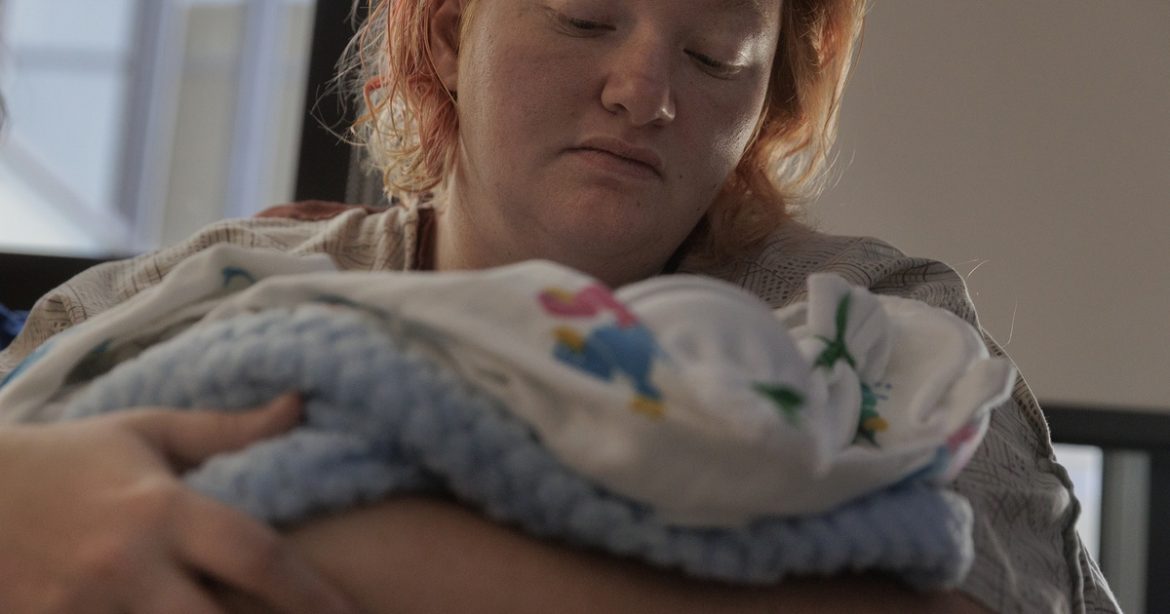One of the US’s leading anti-abortion activists has been appointed to a Texas health committee tasked with reviewing maternal deaths.
The move worries reproductive justice advocates who say the state’s abortion ban – among the strictest in the US – has placed pregnant women’s lives in jeopardy. The appointment could undermine the committee’s ability to accurately examine the impact of the law on deaths during and in the immediate aftermath of pregnancy, they say.
“This appointment speaks volumes about how seriously certain state leaders are taking the issue of maternal mortality,” said Kamyon Conner, executive director of the Texas Equal Access Fund, an abortion assistance group that advocates for reproductive health equity. “It is another sign that the state is more interested in furthering their anti-abortion agenda than protecting the lives of pregnant Texans.”
Dr Ingrid Skop, a San Antonio-based OB-GYN, has long been vocal about her views on abortion.
Skop serves as vice-president and director of medical affairs for the national anti-abortion research group Charlotte Lozier Institute and is a member of the American Association of Pro-Life Obstetricians and Gynecologists.
She is also a plaintiff in a US supreme court lawsuit seeking to revoke the Food and Drug Administration’s approval of the key abortion drug mifepristone, which she argues is “dangerous” despite years of evidence showing the drug is safe. She has authored a number of research papers that were ultimately retracted for misleading errors.
Skop – who has called the supreme court’s overturning of Roe v Wade “a victory in the battle but not the end of the war” – has argued in favor of forcing rape and incest victims as young as nine or 10 to carry pregnancies to term. “If she is developed enough to be menstruating and become pregnant and reach sexual maturity, she can safely give birth to a baby,” Skop told the House oversight committee in 2021. Pregnancy at such a young age is shown to carry significant health risks, including pre-eclampsia and infections.
In Texas, Skop has repeatedly testified at the legislature and in court in support of state abortion bans, most recently in a hearing opposing abortion care for Kate Cox, a Dallas woman who petitioned a judge for emergency access after receiving a lethal fetal diagnosis.
Texas has seen a number of instances of pregnant women being denied emergency abortions, despite, in some cases, life-threatening pregnancy complications. Studies have shown that some patients are being forced to wait at “death’s door” before doctors, who face criminal penalties under the state’s ban, intervene. But Skop has argued that the problem rests with the judgment of individual physicians, not the law itself.
Contrary to the arguments of many experts, Skop believes that abortion bans not only will not lead to an increase in maternal deaths, but may actually help reduce those rates. She calls the link between abortion restrictions and risks to maternal mortality “fallacious”.
Maternal mortality rates in Texas – among the worst in the US – more than doubled between 1999 and 2019. Skop told the Houston Chronicle the state’s high rate of maternal death “deserves rigorous discourse”.
“There are complex reasons for these statistics, including chronic illnesses, poverty and difficulty obtaining prenatal care, and I have long been motivated to identify ways women’s care can be improved,” said Skop. “For over 30 years, I have advocated for both of my patients, a pregnant woman and her unborn child, just like the overwhelming majority of OB-GYNs who don’t perform elective abortions.”
The American College of Obstetricians and Gynecologists questioned Skop’s appointment, saying it was “crucial” that maternal review committee members be informed by “data, not ideology”. Her bias is relevant because abortion, they note, is inherently tied to maternal health.
“We believe that all members of the MMRC should be unbiased, free of conflicts of interest, and focused on the appropriate standards of care when evaluating maternal mortality and morbidity in Texas, which were already at unacceptably high levels even before Texas passed its abortion bans and restrictions,” said ACOG in a statement.
“Bias against abortion has already led to compromised analysis and, ultimately, dangerously flawed data,” said ACOG, citing three research papers critical of abortion that Skop co-authored. The studies were ultimately retracted by the academic publisher for “unjustified or incorrect factual assumptions”, as well as errors and misleading presentations of the data that showed a “lack of scientific rigor and invalidate the authors’ conclusions in whole or in part”.
Skop did not respond to a request from the Guardian for comment.
The 23-member Texas maternal mortality and review committee, created in 2013 amid a maternal healthcare crisis, gathers data on pregnancy-related deaths.
The committee’s latest report showed that 90% of maternal deaths in the state were probably preventable. It is now reviewing pregnancy-related deaths from 2020 and plans to examine the impact of state abortion laws on maternal health in the coming years.
Nakeenya Wilson, who nearly lost her life giving birth in Texas, sat on the committee as an outspoken community advocate, pushing for the release of data when the state health commissioner delayed publication of the report in 2022. As a voice for people of color, Wilson championed the stories of black women, who are disproportionately affected by maternal mortality rates both nationally and in Texas.
After legislation in 2023 eliminated her “community advocate” role, Wilson applied to a different role on the committee, but did not get the job.
While Skop’s role is meant for a rural community member, she has spent her career working in San Antonio, a major Texas city. Skop, who is one of seven new appointees, will begin her six-year term on 1 June.
“As a black mother who went through a traumatic pregnancy first-hand, I think I provided that necessary lived experience and could represent my community well,” Wilson said. “We need to ask, what community is [Skop] representing?”
Source: The Guardian


